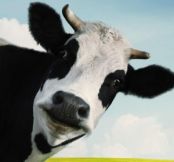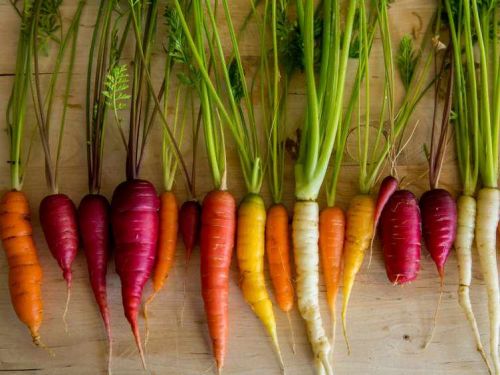 The strain on cows is awful. Bad for a healthy diet, the government says. A climate change villain. Water hog. Greenhouse gas belcher. Started Chicago's fire and blew up a barn last year in Germany. Now consider the Vegetarian Calculator. Or not.
The strain on cows is awful. Bad for a healthy diet, the government says. A climate change villain. Water hog. Greenhouse gas belcher. Started Chicago's fire and blew up a barn last year in Germany. Now consider the Vegetarian Calculator. Or not.
You are a new vegetarian, say, who stopped eating burgers, steaks, ribs and sausage 12 months ago. Florida’s cattle industry, which pours roughly $2 billion into the economy, will be ticked off. But you saved 202 animals and spared the atmosphere 1,609 pounds of harmful gas, according to the Vegetarian Calculator.
Another angle: You have been an animal consumer at the dinner table all your life. For a 35 year old, minus a handful of years as a toddler, you are responsible for 6,060 animals and 48,263 pounds of CO2.
The calculator does not adjust between people who eat no animals at all (vegetarian) or those who eat no animals or animal products (vegan). The source of the science that supports the Calculator is unclear.
 A Gallup Poll indicated 5 percent of Americans are vegetarian and 2 percent vegan. Another poll suggests 13 percent are vegetarian or vegan.
A Gallup Poll indicated 5 percent of Americans are vegetarian and 2 percent vegan. Another poll suggests 13 percent are vegetarian or vegan.
A USA Today story confuses matters, saying an average person will consume 7,000 animals in their lifetimes. But the Calculator computes differently: that degree of slaughter requires 34.65 years -- still time to switch teams and even the score.
Cows get headlines. Expect to eat 11 in a lifetime. But an average human will take down 27 pigs, 2,400 chickens, 80 turkeys, 20 sheep and 4,500 fish, too.
The USDA figures to land a punch too. It publishes Dietary Guidelines for Americans every five years. The 2015 edition is expected to cut out lean beef and – for the first time – introduce environmental concerns for suppertime decision-makers.
According to an advisory panel, “Current evidence shows that the average U.S. diet has a larger environmental impact in terms of increased [greenhouse gas] emissions, land use, water use, and energy use.”
For some, the Dietary Guidelines Advisory Committee’s report will be a cholesterol enabler. That's worth keeping in mind for beef. Policy flip-flops are common (see: eggs).
“So we’re not making a [cholesterol] recommendation?” panel member Miriam Nelson, a Tufts University professor, reportedly said. “Okay ... Bummer.”
Outside
Bitcoin mining emissions in China will hit 130 million tonnes by 2024 https://t.co/w6He7so8N2 pic.twitter.com/qYUDtBdeRK
— New Scientist (@newscientist) April 9, 2021
The Gunk Report
For the Blue-Green Algal Bloom Weekly Update from the Florida Department of Environmental Protection, tap here. For DEP's Algal Bloom Sampling Map, tap here.
What, me worry?
» "PLAYING WITH SHARKS," which recently premiered at the Sundance Film Festival, documents diving legend Valerie Taylor.